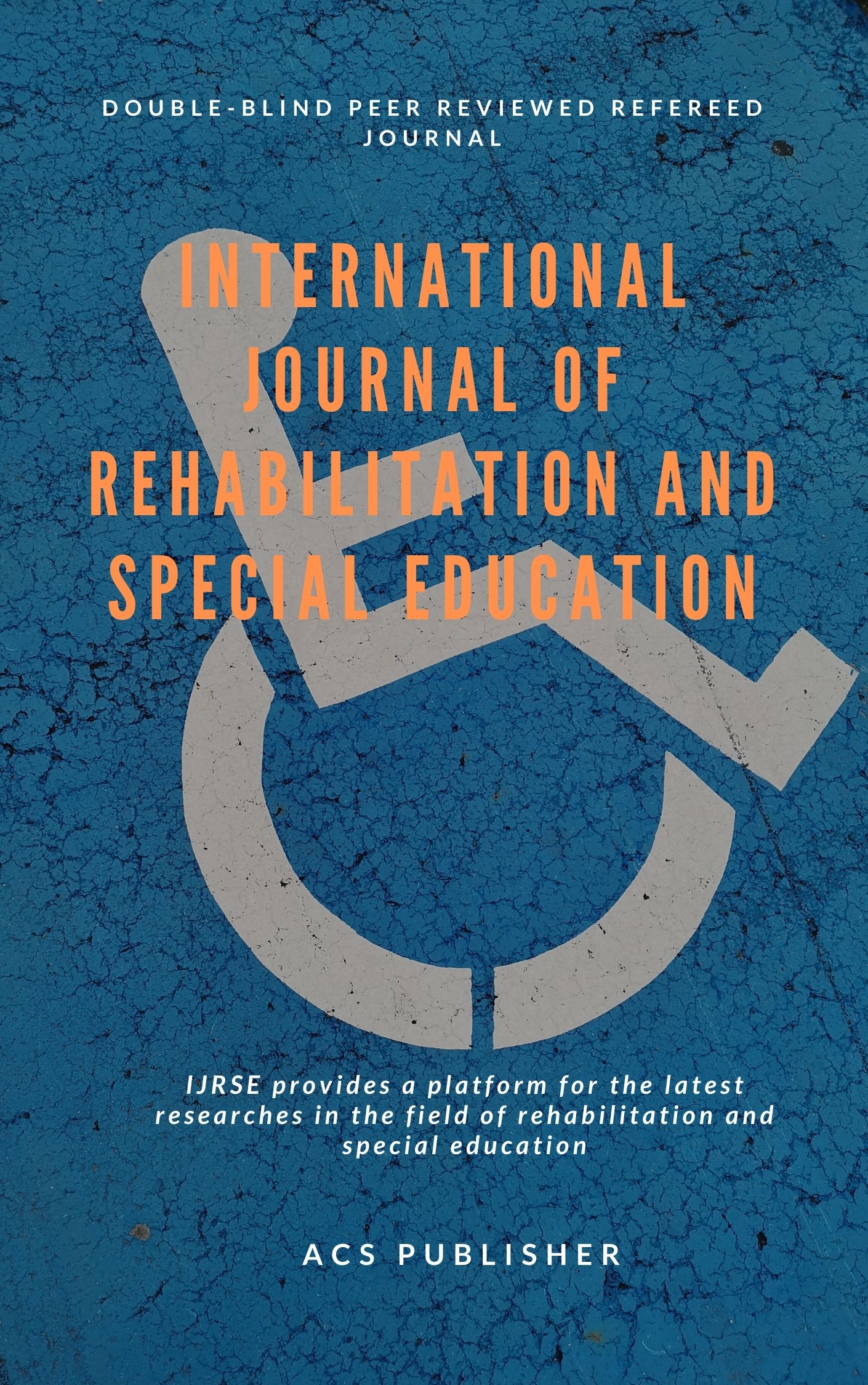Universal Design for Learning in Action: Exploring Strategies, Outcomes, and Challenges in Inclusive Education
DOI:
https://doi.org/10.48165/ijrse.2025.5.2.3Keywords:
Universal Design for Learning (UDL), inclusive education, instructional design, accessibility in education, differentiated instruction, educational equity, teacher professional development, inclusive pedagogyAbstract
Despite strong global advocacy for inclusive education, a gap persists between policy and classroom practice. Universal Design for Learning (UDL) offers a proactive framework to address learner diversity, but its implementation remains uneven. This narrative review examined UDL applications in inclusive education from 2014 to 2024, focusing on instructional strategies, academic and social outcomes, and implementation challenges. A structured search of Consensus and Researcher. Life databases identified empirical studies published in English during the review period. Studies were included if they presented original data on UDL strategies, outcomes, or barriers within formal school or university settings. Eight studies met the inclusion criteria. Findings show that UDL-based instruction frequently applies multiple modes of engagement, representation, and expression. Digital platforms often support access and personalization. Reported outcomes include improved motivation, academic engagement, and social inclusion, although impact varies based on implementation quality and institutional support. Key challenges involve limited training, inadequate resources, and inconsistent understanding of UDL principles. This review affirms UDL’s potential as an equity-driven framework for inclusive education. However, its success depends on sustained investment in professional development, strong leadership, and policy alignment to enable systemic adoption.
References
Almeqdad, Q. I., Alodat, A. M., Alquraan, M. F., Mohaidat, M. A., & Al-Makhzoomy, A. K. (2023). The effectiveness of universal design for learning: A systematic review of the literature and meta-analysis. Cogent Education, 10(1). https://doi.org/10.10
80/2331186x.2023.2218191
Black, R. D., Weinberg, L. A., & Brodwin, M. G. (2015). Universal design for learning and instruction: Perspectives of students with disabilities in higher education. Exceptionality Education International, 25(2). https://doi.org/10.5206/eei.v25i2.7723
CAST. (2018). Universal design for learning guidelines version 2.2. UDL: The UDL Guidelines. https://udlguidelines.cast.org Chawla, N. (2021). Universal design for learning: Implications for
RTLB. Kairaranga, 22(1), 32–49. https://doi.org/10.54322/ kairaranga.v22i1.358
Espada-Chavarria, R. M., Gallego Condoy, M. B., & Gonzalez Montesino, R. H. (2019). Diseño universal del aprendizaje e inclusión en la educación básica en Ecuador. Alteridad, 14(2), 207–218. https://doi.org/10.17163/alt.v14n2.2019.05
Espada-Chavarria, R., González-Montesino, R. H., López Bastías, J. L., & Díaz-Vega, M. (2023). Universal design for learning and instruction: Effective strategies for inclusive higher education. Education Sciences, 13(6), 620. https://doi. org/10.3390/educsci13060620 Ewe, L., & Galvin, T. (2023). Universal design for learning across formal school structures in Europe—A systematic review. Education Sciences, 13(9), 867. https://doi.org/10.3390/ educsci13090867
Fovet, F. (2020). Universal design for learning as a tool for inclusion in the higher education classroom: Tips for the next decade of implementation. Education Journal, 9(6), 163. https://doi. org/10.11648/j.edu.20200906.13
Griful-Freixenet, J., Struyven, K., Verstichele, M., & Andries, C. (2017). Higher education students with disabilities speaking out: Perceived barriers and opportunities of the universal design for learning framework. Disability & Society, 32(10), 1627–1649. https://doi.org/10.1080/09687599.2017.1365695
Guailla, Y. (2024). Implementación del diseño universal para el aprendizaje (DUA) en la educación superior: Retos y oportunidades. https://doi.org/10.62059/latarxiv. preprints.254
Hollingshead, A., Lowrey, K. A., & Howery, K. (2020). Universal design for learning: When policy changes before evidence. Educational Policy, 36(5), 1135–1161. https://doi. org/10.1177/0895904820951120
Ismailov, M., & Chiu, T. K. (2022). Catering to inclusion and diversity with universal design for learning in asynchronous online education: A self-determination theory perspective. Frontiers in Psychology, 13. https://doi.org/10.3389/
fpsyg.2022.819884
Karisa, A. (2022). Universal design for learning: Not another slogan on the street of inclusive education. Disability & Society, 38(1), 194–200. https://doi.org/10.1080/09687599.2022.2125792
Katz, J. (2014). Implementing the three block model of universal design for learning: Effects on teachers’ self-efficacy, stress, and job satisfaction in inclusive classrooms K–12. International Journal of Inclusive Education, 19(1), 1–20. https://doi.org/10.
1080/13603116.2014.881569
Kirsch, B., & Luo, T. (2023). Universal design for learning implementation in higher education: Survey of faculty and
instructional designers. The Journal of Applied Instructional Design. https://doi.org/10.59668/806.13414
McKenzie, J. A., & Dalton, E. M. (2020). Universal design for learning in inclusive education policy in South Africa. African Journal of Disability, 9. https://doi.org/10.4102/ajod.v9i0.776
Roski, M., Sebastian, R., Ewerth, R., Hoppe, A., & Nehring, A. (2024). Learning analytics and the universal design for learning (UDL): A clustering approach. Computers & Education, 214, 105028. https://doi.org/10.1016/j.compedu.2024.105028
Rossi, M. (2022). Universal design for learning and inclusive teaching: Future perspectives. Elementa. Intersections Between Philosophy, Epistemology and Empirical Perspectives, 1(1–2). https://doi.org/10.7358/elem-2021-0102-ross
Rusconi, L., & Squillaci, M. (2023). Effects of a universal design for learning (UDL) training course on the development teachers’ competences: A systematic review. Education Sciences, 13(5), 466. https://doi.org/10.3390/educsci13050466
Scott, L. A. (2018). Barriers with implementing a universal design for learning framework. Inclusion, 6(4), 274–286. https://doi. org/10.1352/2326-6988-6.4.274
Sewell, A., Kennett, A., & Pugh, V. (2022). Universal design for learning as a theory of inclusive practice for use by educational psychologists. Educational Psychology in Practice, 38(4), 364– 378. https://doi.org/10.1080/02667363.2022.2111677
Sharma, A., Thakur, K., Kapoor, D. S., & Singh, K. J. (2023). Designing inclusive learning environments. In Advances in Educational Technologies and Instructional Design (pp. 24–61). https://doi.org/10.4018/978-1-6684-8208-7.ch002
Sujathamalini, J., Gunasekaran, K., & T. R., V. (2022). Universal design for learning in inclusive classroom to ensure sustainable development goals: Inclusive and equitable quality classroom. International Journal of Science and Healthcare Research, 7(2), 239–243. https://doi.org/10.52403/ijshr.20220434
Wilson, J. D. (2017). Reimagining disability and inclusive education through universal design for learning. Disability Studies Quarterly, 37(2). https://doi.org/10.18061/dsq.v37i2.5417
Downloads
Published
Issue
Section
License
Copyright (c) 2025 International Journal of Rehabilitation and Special Education (IJRSE)

This work is licensed under a Creative Commons Attribution-NonCommercial-NoDerivatives 4.0 International License.

